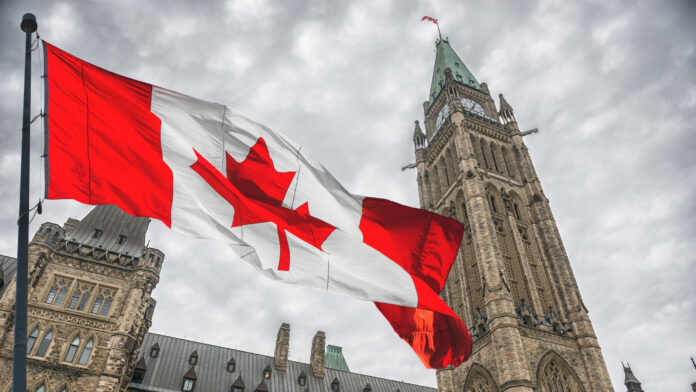Facebook and Instagram users in Canada may need more pictures of babies, pets, and food, because in less than six months they won’t be able to share news links on those platforms.
Meta said it will impose that ban after Canada’s Parliament passed legislation(Opens in a new window) that will require large online platforms to compensate Canadian news sites in the next six months.
“Today, we are confirming that news availability will be ended on Facebook and Instagram for all users in Canada prior to the Online News Act (Bill C-18(Opens in a new window)) taking effect,” Meta says(Opens in a new window).
The Online News Act(Opens in a new window) sets up a system of mandatory arbitration between every “digital news intermediary” (defined as “an online communications platform, including a search engine or social media service” that makes news content available in Canada) and news outlets designated by the Canadian Radio-television and Telecommunications Commission(Opens in a new window) if “a significant bargaining power imbalance” exists between the intermediary and those outlets.
The bill defines making news available broadly enough to include just linking to it: reproducing “the news content, or any portion of it” or enabling access to it “by any means, including an index, aggregation, or ranking of news content.” It also defines “news outlet” broadly to cover any general-interest newsroom that employs at least two journalists in Canada and operates along recognized codes of journalistic ethics.
C-18 additionally imposes non-discrimination requirements on online platforms, to be enforced by the commission. The language there doesn’t address actions taken against news sites that spread misinformation, although it does let the commission consider whether a platform’s conduct matched its “normal course of business.”
The bill also allows the commission to exempt an online platform from this impending arbitration system if the platform strikes its own agreements with Canadian news businesses that “provide for fair compensation,” and cover “news businesses that reflect a diversity of business models that provide services to all markets and diverse population,” among other qualifications.
Thursday’s response from Meta followed earlier objections from the company to this bill.
A May 1 post(Opens in a new window), for example, quoted Meta global affairs president Nick Clegg: “Publishers choose to share their content because it benefits them to do so, whereas it isn’t particularly valuable to us at all.” He added that links to news stories make up less than 3% of content in Facebook’s feed, while Meta estimated that those links resulted in more than 1.9 billion clicks to Canadian news sites from April 2021 to April 2022.
A similar argument played out in Australia in early 2021, when Facebook responded to a new law mandating news compensation by blocking users there from viewing or sharing news content, and also blocking both the pages of Australian news sites and shares of their work worldwide. The company relented and restored news sharing in Australia weeks later after tweaks to that bill and has since signed separate deals with news publishers that have resulted in it not being designated for that law’s mandatory arbitration.
California is now considering its own news-sharing bill, which has resulted in Facebook warning that it may yank news from Facebook and Instagram in its own home state.
Recommended by Our Editors
Google, which would also be covered by C-18 and has been the target of similar measures for the last decade, had not posted a comment about the passage of the Canadian bill on its Canada blog(Opens in a new window) as of Friday morning. In a March 10 post(Opens in a new window), however, Sabrina Geremia, vice president and country managing director for Google Canada, warned that charging for links would pollute the news ecosystem.
“When you put a price on linking to certain information, you no longer have a free and open web,” she wrote. “Requiring payment based on linking encourages cheap clickbait, not quality journalism.”
Geremia’s post added that Google has already inked deals with “150+ Canadian publications” to license their content on Google News Showcase(Opens in a new window), a souped-up online newsstand that Google now plans to bring to the US later this summer.
In a post Friday morning(Opens in a new window), Michael Geist, a law professor and copyright expert at the University of Ottawa, called C-18’s passage “a legislative mess that leaves no clear winners” and a missed opportunity to pass stronger rules about privacy and artificial intelligence.
“Bill C-18 threatens to create a Canadian news void on Facebook and Instagram, a result that will increase the visibility of low quality sources and lead to millions in lost traffic and revenues for the supposed beneficiaries of the bill,” Geist wrote. “Losing those free referral links will have a damaging effect on those news outlets and undermine competition, leading to reduced traffic, less ad revenue, and fewer subscribers.”
Get Our Best Stories!
Sign up for What’s New Now to get our top stories delivered to your inbox every morning.
This newsletter may contain advertising, deals, or affiliate links. Subscribing to a newsletter indicates your consent to our Terms of Use and Privacy Policy. You may unsubscribe from the newsletters at any time.
Hits: 0















